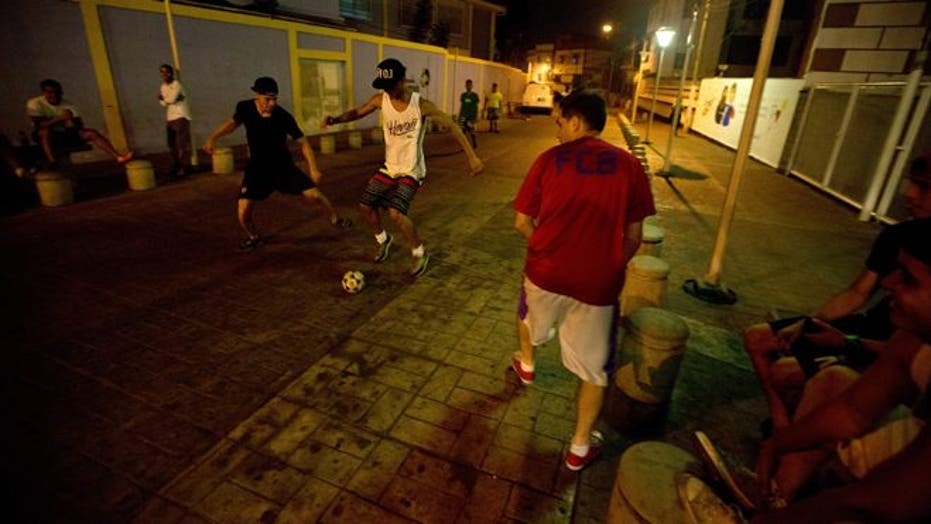CARACAS, Venezuela (AP) – In one of the most dangerous cities in the world, there is strength in numbers.
As daylight fades in Caracas, packs of cyclists, groups of fitness-enthusiasts and families of film fans are coming out to reclaim their streets and parks from criminal gangs.
Their lives reshaped by a steep economic skid and long wave of violent crime, many residents of the sprawling capital say they have had enough of cowering behind gated windows and locked doors.
Twice a week, Mariela Virguez ventures out for an evening ride with a cycling group that scales the hills of El Hatillo, a colonial-era district in the south that has seen a rash of kidnappings.
"I refuse to give this up just because of the situation in this country," said the 50-year-old computer engineer. "We don't have food, we don't have toilet paper, we have to wait in long lines -- "and they're going to deny us physical fitness, too?"
In posh eastern Caracas, where the rich are regular targets of express kidnappings and armed assaults, a group of runners give themselves a whooping round of applause just for showing up and then set out on streets few would dare run alone.
With its year-round warm temperatures, Caracas once was a city of all-night block parties and bar crawls. In the Petare slum, local community organizer Carmen Teresa Perdomo said neighbors used to stand around socializing until dawn. But as crime spread, people began adopting informal curfews, going inside and locking up their doors by 7:30 p.m. To stay out later was to be exposed to insecurity.
Earlier this year, Perdomo said, criminals detonated a grenade in the middle of the street while fleeing police. Weeks later, her nephew was shot dead in the same streets during a botched robbery.
"The sense of danger has been vicious here for some time," she said.
Organizers hope that by inviting residents out to evening gatherings, they will prevent early curfews and pervasive fear from becoming Caracas' new normal.
"We're trying to bring them a vision of a different reality, to show them they can do more than become criminals," said Edmundo Rada, a member of the Committee on Culture and Tourism for the municipality of Sucre, which encompasses Petare. "There are also good things like dance, culture and art, and we're starting to take back spaces where they can come and see that."
Jean Carlos Jayaro, a 35-year-old merchant, enjoyed a recent evening out with his children in Petare, where local officials show movies three times a week. On this night, the family enjoyed watching "Penguins of Madagascar" on a makeshift movie screen - a sheet of cloth hung at the end of a dusty road.
"We have to take back our streets and free them from the violence," Jayaro said, stroking his son's back. "We need to reclaim our spaces."

